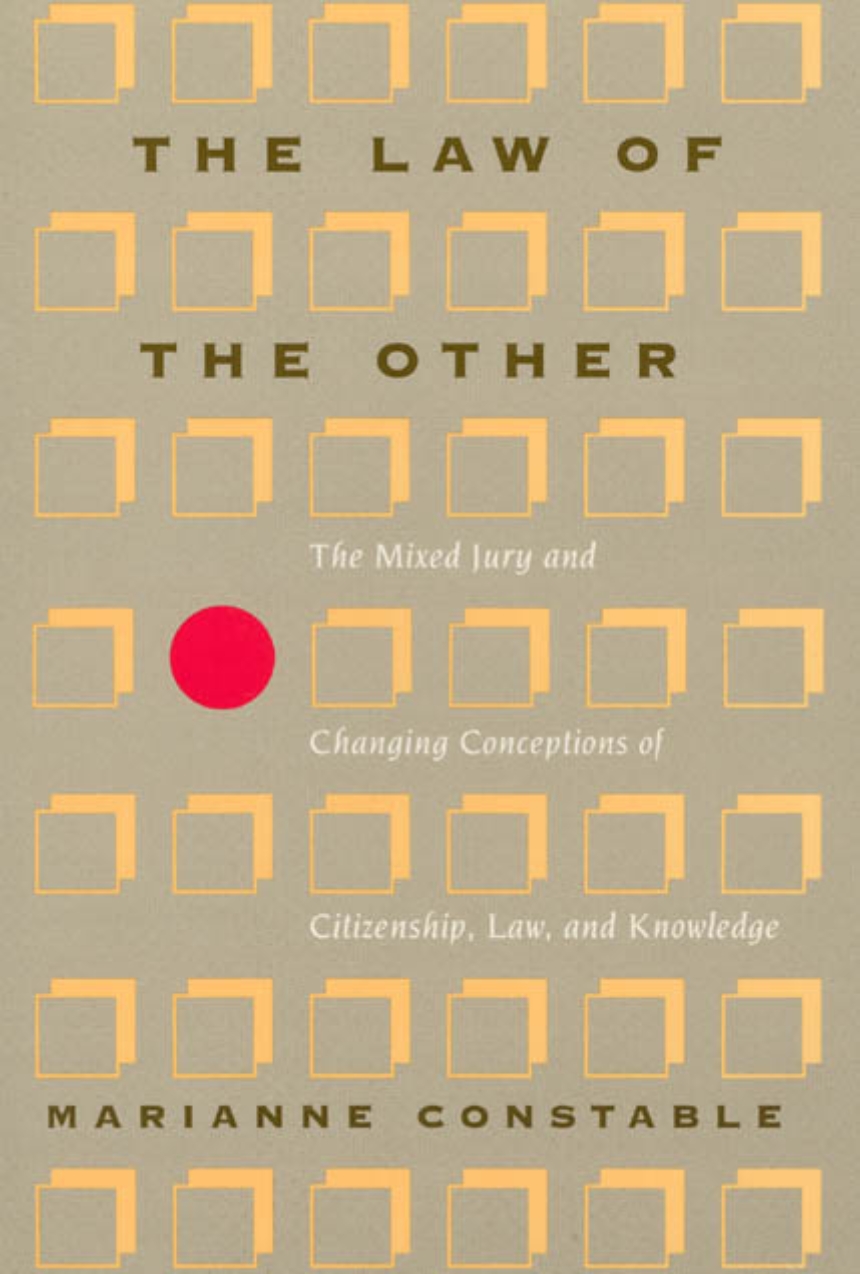The Law of the Other
The Mixed Jury and Changing Conceptions of Citizenship, Law, and Knowledge
9780226114989
The Law of the Other
The Mixed Jury and Changing Conceptions of Citizenship, Law, and Knowledge
The Law of the Other is an account of the English doctrine of the "mixed jury". Constable’s excavation of the historical, rhetorical, and theoretical foundations of modern law recasts our legal and sociological understandings of the American jury and our contemporary conceptions of law, citizenship, and truth.
The "mixed jury" doctrine allowed resident foreigners to have law suits against English natives tried before juries composed half of natives and half of aliens like themselves. As she traces the transformations in this doctrine from the Middle Ages to its abolition in 1870, Constable also reveals the emergence of a world where law rooted in actual practices and customs of communities is replaced by law determined by officials, where juries no longer strive to speak the truth but to ascertain the facts.
The "mixed jury" doctrine allowed resident foreigners to have law suits against English natives tried before juries composed half of natives and half of aliens like themselves. As she traces the transformations in this doctrine from the Middle Ages to its abolition in 1870, Constable also reveals the emergence of a world where law rooted in actual practices and customs of communities is replaced by law determined by officials, where juries no longer strive to speak the truth but to ascertain the facts.
Table of Contents
Acknowledgments
Introduction
1: The Early Mixed Jury
1: Customs and Communities
2: Early Mixed Juries
3: Positive Law and Personal Law
2: The Modern American Jury
1: A Representative Cross-Section of the Population
2: Jurors as Peers: Non-Random Identification and Selection
3: Reliability and the Modern Verdict
3: Sociological Society
1: Studies of Juries
2: The Law of the Officials
3: Improving the Jury Trial
4: Sociological Society
4: A Matter of History
1: The Origin of Positive Law
2: The Mark of Authority
3: The Writing of Rules
5: The Writing of Law
1: The Statutes of Edward III of 1353, 1354, and 1362
2: Interpreting the Language of the Law
3: Sherley’s Case
6: The Jury de Medietate Linguae
1: The Introduction of "Linguae"
2: Sixteenth-Century Changes in Mixed Jury Composition
3: Language and Community
7: The Indifferent Jury
1: Impartiality and Suits among Aliens
2: Eighteenth- and Nineteenth-Century Juries
3: The Case of Manning and Manning
4: The Loss of Difference
5: The Abolition of the Mixed Jury
Conclusion
Notes
Index
Introduction
1: The Early Mixed Jury
1: Customs and Communities
2: Early Mixed Juries
3: Positive Law and Personal Law
2: The Modern American Jury
1: A Representative Cross-Section of the Population
2: Jurors as Peers: Non-Random Identification and Selection
3: Reliability and the Modern Verdict
3: Sociological Society
1: Studies of Juries
2: The Law of the Officials
3: Improving the Jury Trial
4: Sociological Society
4: A Matter of History
1: The Origin of Positive Law
2: The Mark of Authority
3: The Writing of Rules
5: The Writing of Law
1: The Statutes of Edward III of 1353, 1354, and 1362
2: Interpreting the Language of the Law
3: Sherley’s Case
6: The Jury de Medietate Linguae
1: The Introduction of "Linguae"
2: Sixteenth-Century Changes in Mixed Jury Composition
3: Language and Community
7: The Indifferent Jury
1: Impartiality and Suits among Aliens
2: Eighteenth- and Nineteenth-Century Juries
3: The Case of Manning and Manning
4: The Loss of Difference
5: The Abolition of the Mixed Jury
Conclusion
Notes
Index
Awards
Law and Society Association: James Willard Hurst Prize in American Legal History
Won
